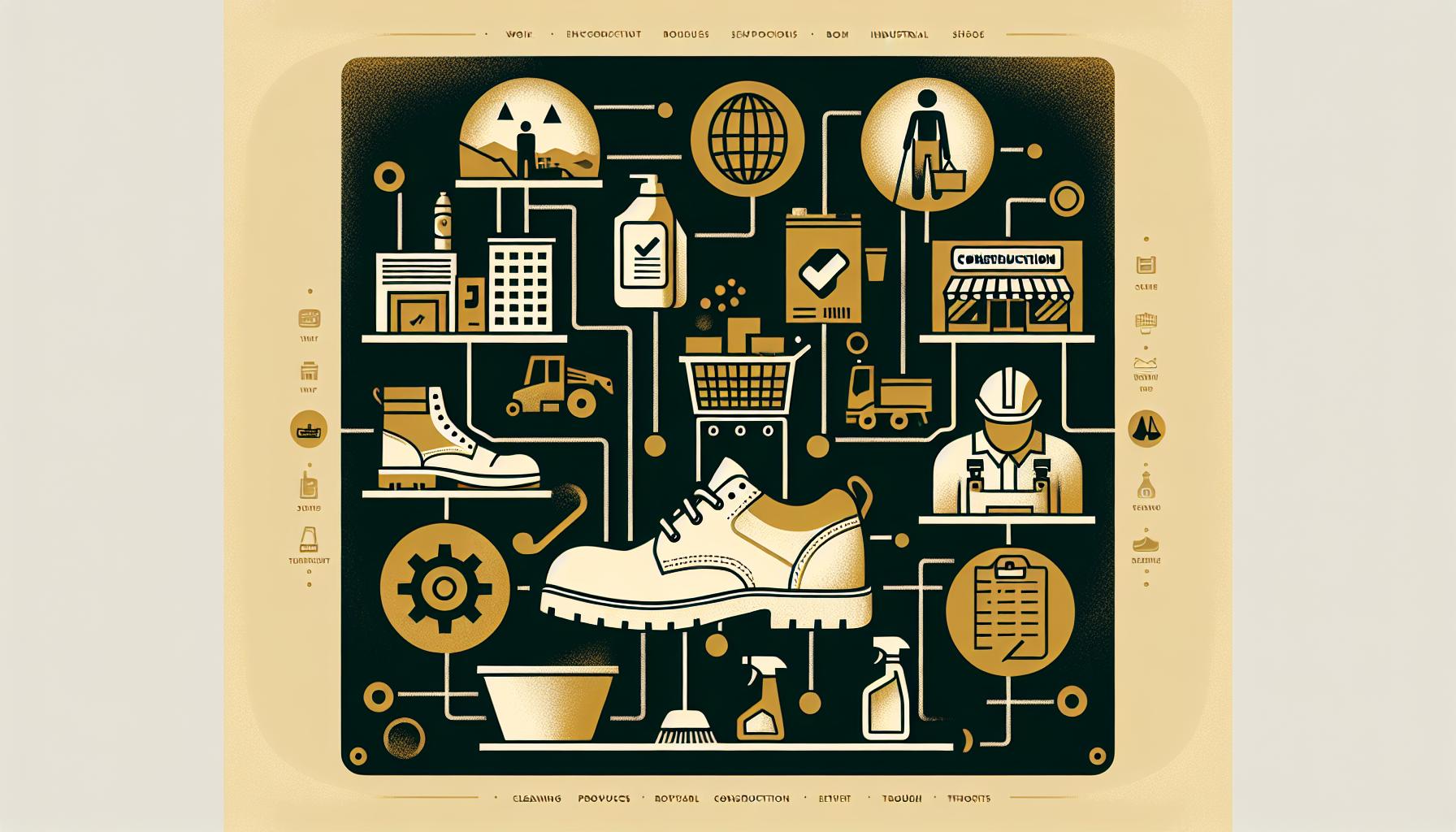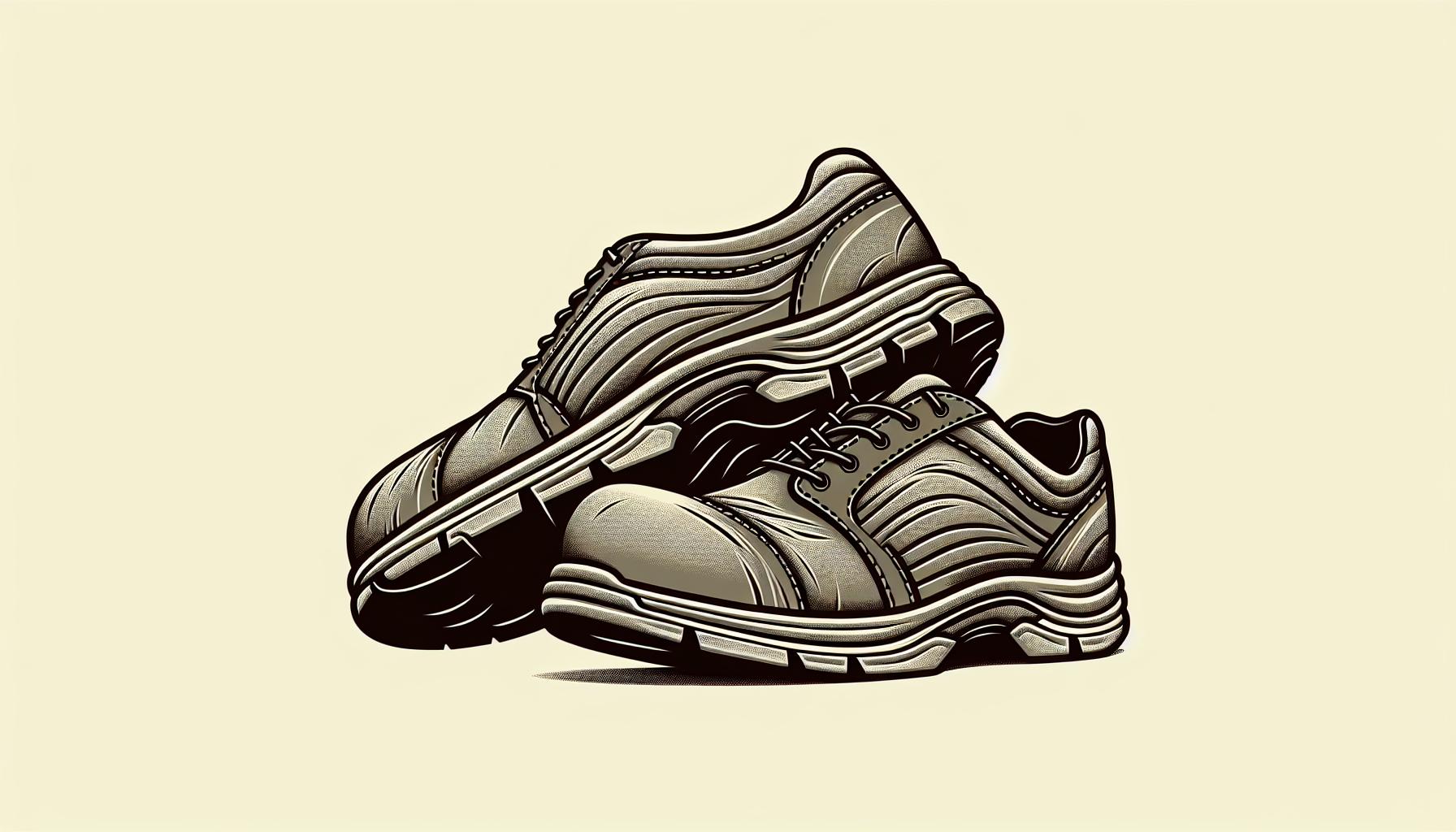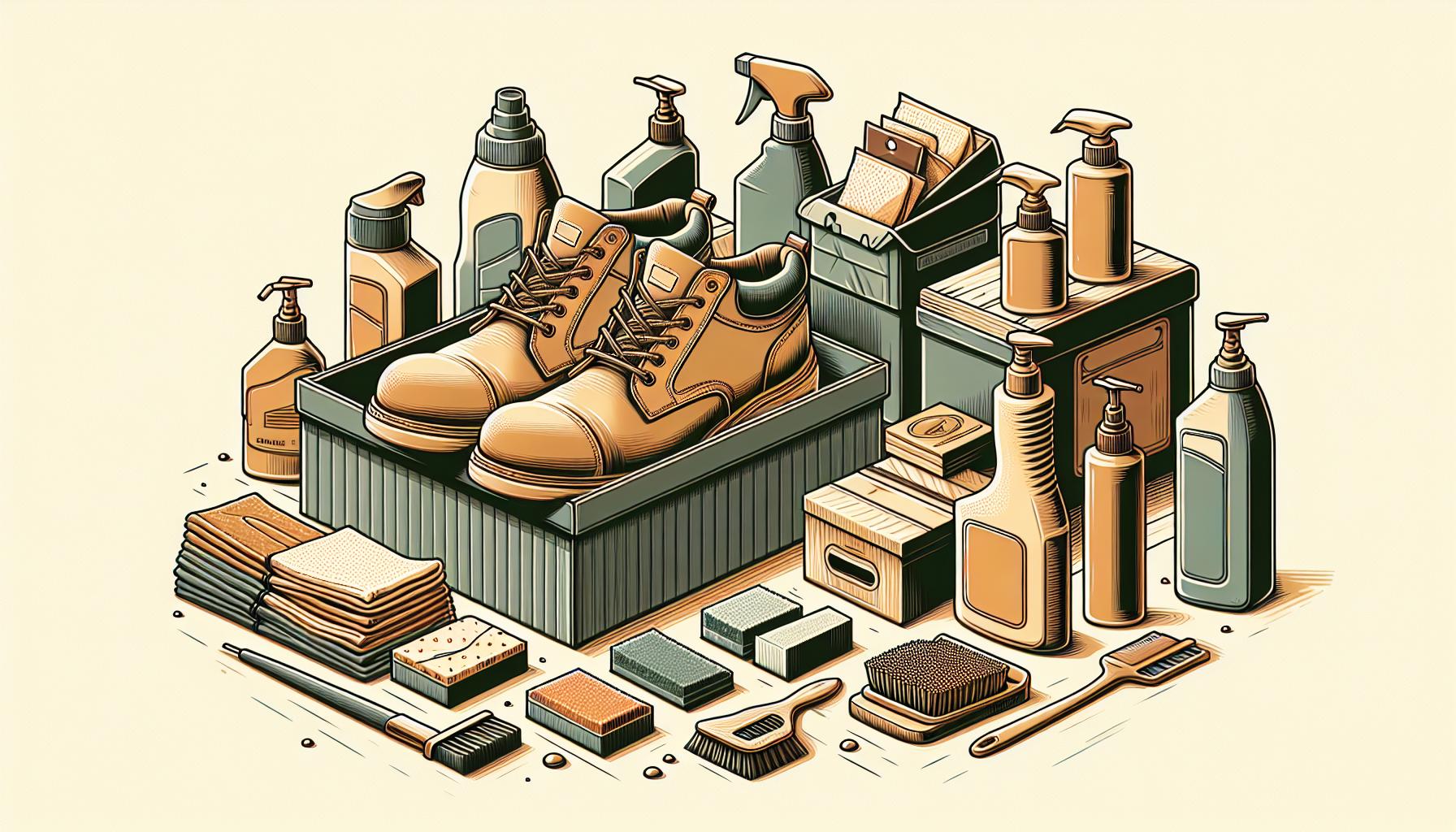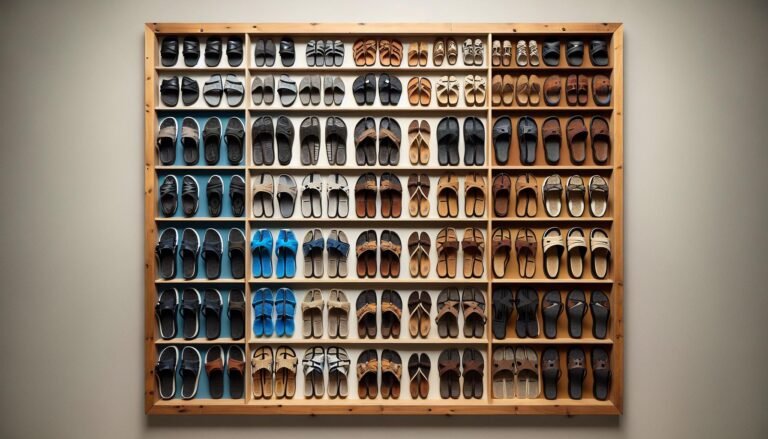Maximize Your Footwear: How Long Should Work Shoes Last?
Choosing the right work shoes is crucial, not just for comfort but also for durability. I’ve often wondered, how long should a good pair of work shoes actually last? It’s a question that’s not just about getting your money’s worth, but also ensuring your feet are well-supported day in, day out.
From my experience, the lifespan of work shoes can vary widely depending on several factors, including the quality of the shoe, the environment they’re used in, and how well they’re cared for. Let’s dive into what you need to know to make your work shoes last as long as possible, ensuring you stay comfortable and protected at work.
Key Takeaways
- Quality is Key: Investing in high-quality work shoes made with durable materials and construction techniques significantly increases their lifespan, offering better support and protection over time.
- Environment Matters: The longevity of work shoes is heavily influenced by the conditions in which they are worn. Harsh environments like construction sites may lead to quicker wear and tear, highlighting the importance of choosing the right shoes for your work setting.
- Routine Maintenance: Regular cleaning, proper storage, and the use of appropriate care products play a crucial role in extending the lifespan of work shoes, preventing damage from dirt, moisture, and exposure to elements.
- Know When to Replace: Recognizing signs of wear and tear such as visible damage, persistent discomfort, insole deterioration, and reduced water resistance is essential for maintaining foot comfort and safety, indicating when it’s time for a new pair.
- Proactive Care Strategies: Incorporating practices like rotating shoes, timely repairs, and investing in quality care products not only prolongs the life of your work shoes but also ensures ongoing comfort and protection.
- The Value of Footwear Maintenance: Regular upkeep of work shoes is not just about aesthetics; it’s a practical approach to safeguarding their structural integrity, comfort, and performance, ultimately maximizing your footwear investment.
Factors Affecting the Longevity of Work Shoes

In my experience, understanding the factors that influence the longevity of work shoes is crucial for anyone seeking to make a sound investment in their footgear. Several elements play a significant role in determining how long your work shoes will last.
First off, quality matters. A high-quality pair of work shoes is designed with durable materials and superior construction techniques. This can dramatically extend their lifespan. The adage “you get what you pay for” often holds true when it comes to work shoes.
Next, the environment in which you wear your shoes influences their durability. For example, work shoes used in construction or industrial settings, where they’re exposed to harsh conditions, may not last as long as those worn in a retail environment. Factors like moisture, chemicals, and physical abrasions can accelerate wear and tear.
Lastly, maintenance plays a pivotal role. I’ve found that regularly cleaning and caring for my work shoes not only keeps them looking good but also extends their usable life. Simple practices, such as drying out shoes properly if they get wet and applying leather conditioner to leather shoes, can make a significant difference.
Let’s look at some data to illustrate how these factors can impact the longevity of work shoes:
| Factor | Impact on Longevity |
|---|---|
| Quality | High-quality materials and construction methods can significantly extend lifespan. |
| Environment | Harsh conditions can reduce lifespan, while gentler environments tend to preserve it. |
| Maintenance | Regular cleaning and care can greatly increase durability. |
By paying attention to these crucial aspects, it’s possible to ensure that your work shoes stand the test of time, providing comfort and protection throughout their use. Maintaining and choosing the right shoes for the right environment goes a long way in maximizing their lifespan.
Signs Your Work Shoes Need to be Replaced

Recognizing when it’s time to replace my work shoes is crucial to maintain not only the comfort but also the safety and effectiveness at my job. Over time, even the most durable shoes will show signs of wear and tear that indicate they’re no longer providing the support and protection I need. Here’s what I look for to determine if my work shoes are due for an upgrade.
Visible Wear and Tear: This is the most obvious sign. I inspect my shoes for any cracks in the sole, worn-down treads, or holes in the fabric. These imperfections are more than just cosmetic issues; they can compromise the shoe’s ability to provide traction and protection from hazards.
Persistent Discomfort: If I start experiencing persistent discomfort or new aches in my feet, legs, or back, it’s often a sign that my work shoes are no longer offering adequate support. Properly supportive footwear is essential, especially if I’m on my feet for long hours.
Insole Deterioration: The insoles of work shoes play a significant role in providing comfort and cushioning. If the insoles are visibly worn out, flattened, or if they start to smell, it’s a clear indicator that my shoes are no longer performing at their best.
Reduced Water Resistance: For those of us working in wet conditions or outdoor environments, water resistance is a critical feature of work shoes. If I notice that my feet are getting wet even in light moisture, it’s a sign that the waterproofing has deteriorated and the shoes need to be replaced.
Paying attention to these signs not only ensures that I’m always equipped with the best gear for my job but also helps prevent potential injuries associated with worn-out footwear. Regularly assessing the condition of my work shoes is an investment in my comfort, safety, and overall job performance.
How to Extend the Lifespan of Your Work Shoes

Maintaining the longevity of work shoes is something I’ve learned is both practical and cost-effective. It’s not just about purchasing durable shoes; it’s also about taking proactive steps to care for them. Over the years, I’ve discovered several key practices that significantly extend the life of work shoes.
Routine Cleaning is paramount. After each workday, I take a few minutes to brush off any dirt or debris. For deeper cleans, using a mild soap and water solution can prevent the buildup of substances that may degrade the shoe material over time.
Proper Storage makes a difference. I always ensure my shoes are stored in a cool, dry place away from direct sunlight. Moisture and heat can warp the shape of the shoes and deteriorate the materials, leading to a shorter lifespan.
Alternating Shoes is a trick I swear by. I rotate between pairs to avoid excessive wear on any single pair, allowing them adequate time to air out and recover from the day’s stresses.
Investing in Quality Care Products has been a game-changer. From waterproofing sprays to protective creams for leather, the right products can shield your shoes from the elements, reducing the wear and tear from water exposure and sun damage.
Timely Repairs can save a pair from retirement. At the first sign of damage – be it a loose sole or frayed laces – I address it. Sometimes, a quick visit to a shoe repair service can prolong a shoe’s life by months, if not years.
By integrating these practices into my routine, I’ve significantly increased the lifespan of my work shoes, ensuring that I get the most value out of my investment while continuing to benefit from their comfort and protection.
Importance of Proper Footwear Maintenance

Maintaining my work shoes is not just about keeping them clean and presentable; it’s crucial for ensuring they last as long as possible. Over the years, I’ve learned a few key reasons why proper footwear maintenance is so important.
Firstly, regular cleaning and care prevent the buildup of dirt and moisture, which can damage the materials of the shoes over time. By making sure my shoes are clean, I’m also ensuring they remain in good condition, which directly impacts their durability.
Another aspect I’ve come to appreciate is the importance of using the right products for shoe care. Not all cleaning agents and conditioners are suitable for every type of material. I’ve found that investing in quality products specifically designed for the material of my work shoes, be it leather or synthetic, significantly extends their life.
Proper storage is another critical factor. I always make sure to store my shoes in a cool, dry place away from direct sunlight. This prevents the materials from degrading and maintains the shape and structure of the shoes. I’ve noticed that shoes I care for in this way do not just last longer but also provide better support and comfort throughout their life.
Incorporating these practices into my routine has not only helped me get the most out of my work shoes but also ensured that they remain comfortable and functional. It’s clear that a little effort in maintenance goes a long way in extending the lifespan of work shoes, making it an essential strategy for anyone looking to maximize their footwear investment.
Conclusion
I’ve shared the essentials of extending the life of your work shoes through proper care and maintenance. By adopting these straightforward practices, you’re not just ensuring your shoes last longer but also guaranteeing they provide the best support and comfort for your feet. Remember, it’s not just about saving money—it’s about investing in your comfort and well-being at work. So, give your shoes the attention they deserve and they’ll take care of your feet in return.
Frequently Asked Questions
What is the importance of maintaining work shoes?
Maintaining work shoes is crucial for extending their lifespan, ensuring they provide optimal support, comfort, and functionality. Proper care helps prevent material damage, allowing individuals to maximize their footwear investment.
How often should work shoes be cleaned?
Work shoes should be cleaned regularly, depending on the frequency of use and the conditions they are exposed to. It’s advisable to clean them whenever they are visibly dirty or after being used in harsh or muddy conditions.
What types of care products are recommended for work shoes?
The type of care products recommended depends on the material of the work shoes. Leather shoes benefit from conditioners and polish, while synthetic materials may require specific cleaners designed for their composition. Always follow the manufacturer’s recommendations.
Why is it important to store work shoes in a cool, dry place?
Storing work shoes in a cool, dry place is essential to maintain their shape and structure. It prevents the materials from deteriorating due to moisture and excessive heat, which can cause the shoes to become misshapen or damaged over time.
Can proper footwear maintenance improve the functionality of work shoes?
Yes, proper footwear maintenance can significantly improve the functionality of work shoes. By keeping them in good condition, individuals can ensure their shoes continue to provide the necessary support and comfort required for their work environment.







[…] there are several at-home methods to stretch shoes for wide feet, intricate footwear like leather boots sometimes require the expertise of a cobbler or […]